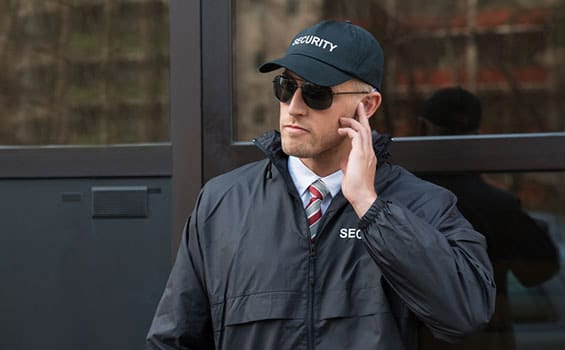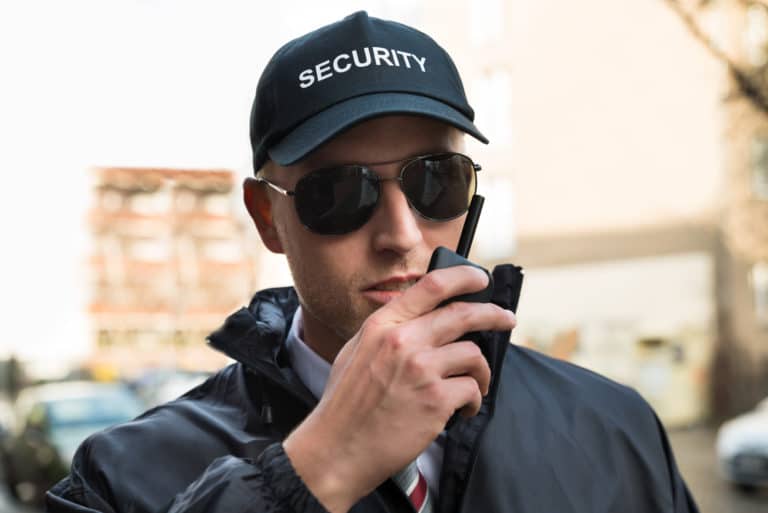
Moonlighting Off Duty Police Officers Vs Civilian Security Guards
Choosing the right security personnel for your needs is crucial to protecting your material assets, property, or people – but the choice can be dizzying.
The pros and cons stack up between off-duty police officers and civilian security guards, where the most concerning differences between the two are type and quality of training and experience, legal freedoms and constraints, and affordability.
Differences In Training And Experience Lead To Specialization
Depending on their jurisdiction, civilian security guards need to undergo anywhere from 0 to 18 hours of training to get their license to work in the field. This is an unbelievably broad range of required training hours and leads to a motley industry full of individuals with drastically varying levels of qualifications. Many civilian security guards are people with no prior background in public safety of any kind, while others have a background in the military or are seasoned veterans. It can be incredibly frustrating to vet the under-skilled candidates from the serious and well trained. On the other hand, police begin their careers by learning for an average of 6 to 9 months in an academy and then go on to complete 40 or more hours of in-service training each year. This sets off-duty police security far apart from civilian security guards for the sheer reliability of their training and skill set.
Beyond training lies experience, and once again off-duty police security takes the cake for reliability. Their training and work in the field make them well suited for scenarios that are tense and serious in nature, and they can navigate situations that require technicality and strict adherence to protocol. On the flipside, civilian security is quite flexible. They can have a broad range of experience, which means that they may specialize in certain projects according to their history- such as crowd management at festivals, property monitoring, and so on.
Legality And Two Fundamentally Different Approaches
The difference between criminal law and civil law is quite large. Police are firmly based on the criminal law side of things on their approach to justice, protection, and safety. Furthermore, in some cases of civil law, they are altogether prohibited from interfering. Even when off duty a police officer is a police officer, and as such their hands are tied in some situations. For example, it’s a civil rights violation if they stop and question an individual without a solid and probable cause for suspicion. However, civilian security is under no such constraint and may question anybody on the premises they are protecting.
While police officers are trained in criminal law, the training given to civilian security guards lies in the sector of civil law. This difference also shows itself in the way either type of guard might handle the same situation. Civilian security allows for a higher level of discretion, allowing for smooth and peaceful handling of sensitive situations. Whereas off-duty police may be forced to arrest an individual for a behavior or action, thus bringing unwanted attention and perhaps driving away customers. The preferred result of this situation will differ greatly based on the needs of each client and their project.
Affordability and Utility
One important and perhaps unfortunate detail to consider is that off-duty police security guards are exactly that – police officers who are moonlighting at a part-time job. Their security details are an extra gig after a regular full-time shift working law enforcement. This can have an impact on their attentiveness and vigilance when they are doing security work. However, it is perhaps unfair to place too much weight on this observation since any civilian security guard could have other jobs too.
Since civilian security guards usually have less training and experience than off-duty police officers, they are often more affordable. They are well suited to low-risk events and other generally low-intensity projects.
Off-duty police security officers in turn come at a higher price because their extensive training and fieldwork are quite valuable. They are an investment for environments and situations which have the potential to turn into very dangerous and emergent scenarios.




0 Comments